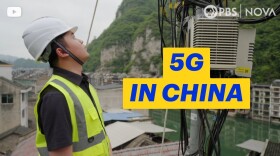-
A monument from Ancient Egypt depicts an unusually powerful woman, standing alongside the king. Who was she?
-
Birds today make flight look effortless, but its evolution was complex. Scientists are still trying to discover exactly how birds took to the skies, and today, a new perspective has emerged by studying how flightless chicks become skilled flyers.
-
Our skies are full of objects, natural and manmade, that are not as strange as you might think when you spot them from the ground.
-
On November 14th, 2004, Navy pilots reported seeing a mysterious flying object about 100 miles southwest of San Diego. The footage they recorded—known infamously as the "Tic Tac" UFO— sparks fierce debate and remains an unsolved mystery. One of the pilot witnesses, Alex Dietrich, tells her story from that day. Can experts from the science and military community explain this phenomenon?
-
Navy pilots are speaking out, sharing their experiences with UFO sightings. After years of highly publicized news stories and Congressional investigations, pilots discuss the stigma they still feel around talking about their experiences.
-
The oldest DNA ever recovered revealed a unique ecosystem unlike anything that exists today.
-
China is betting big on 5G, deploying the technology at a greater scale than any other place in the world.
-
Seven-hundred-million years ago, ice threatened to make our planet uninhabitable, snuffing out new complex life forms. From this climate catastrophe, new forms of life arose, eventually leading to the living world today. But it was a close call.
-
Wildfire smoke can carry thousands of living microorganisms, like bacteria and fungi, across long distances. Some of them could potentially infect humans. With wildfires on the rise, experts are studying the risk this poses to our health.
-
Megafires like those in California can spawn deadly fire tornadoes with incredibly powerful winds. But what causes the flames to start spinning?
-
A mysterious coffin found beneath the damaged floor of Notre Dame is full of unexpected discoveries. The lead sarcophagus appears to have been moved and there are no identifying markers. Who is the John Doe buried inside?
-
A Black family uses DNA technology to unlock secrets of the past.

















